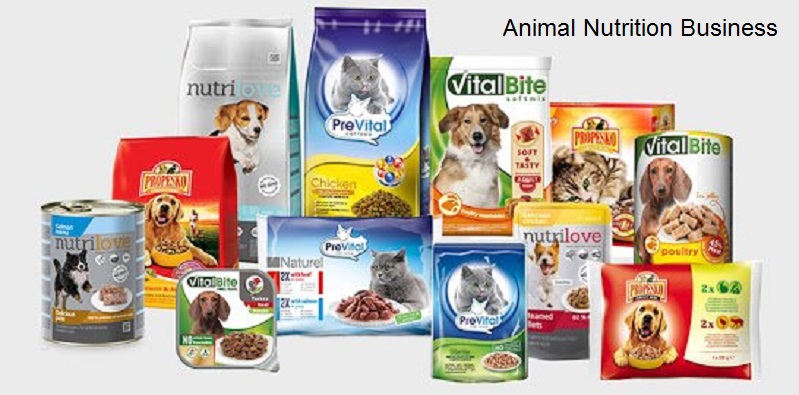Starting An Animal Nutrition Business For Pet Care Experts

There is increasing interest these days in providing pets with nutritious food options to improve health and quality of life. Many caring owners are looking into ingredients, asking questions at pet stores, and discussing diet with vets and groomers.
People now read pet food labels more closely, avoiding products with fillers or unclear nutrition. Demand has grown for quality ingredients and small-batch, fresh, or raw pet foods. As nutrition improves, pets live longer, and owners treat them like family members who deserve good food.
Market research is crucial when starting a pet nutrition business. Survey area pet owners, stores, and professionals to identify unmet needs ripe for new products. Share pet food tips to build community trust in one’s expertise before selling.
Various grants help cover early startup costs for founders over 30 without prior business experience. Even modest funding via business startup grants for those over 30s takes some stress out of those initial efforts.
Begin small with a few ethically sourced suppliers. Sell locally and online to establish which recipes and products resonate best with pet parents and industry pros. Expand over time by adding more recipes and fostering partnerships with shops, clinics, hotels, and shelters.
Building Your Expertise
Consider any certifications needed to make or sell pet food in your area. Be accredited as a safe pet food supplier. This shows professionalism.
Some credentials, like consulting, require vet approval. Make sure your guidance aligns with vets. Ask experts to review recipes and claims.
Staying Current
Pet nutrition advances quickly. Commit to regular training to stay current. Check industry sites for new research. Sign up for updates from respected brands or experts.
Attend seminars, workshops, and webinars as often as possible. Ask smart questions to staff and attendees. Exchange ideas and take thorough notes.
Building Knowledge
Read books by veterinary nutritionists to understand pet food science. Do online courses on pet diets or health. Join professional groups online or locally to exchange insights.
Save useful articles on trends like fresh food or raw diets to share. Follow what conditions or life stages pets need specialised meals for. Know how ingredients, sourcing, and preparation techniques affect nutritional value.
Apply learned information to educational content. Show comprehension by teaching others. Ask for feedback to improve. Share smart advice, not just selling.
Creating a Business Plan
Look into the approvals needed to make or sell pet food locally. Get listed as an approved supplier. This shows you are reliable. Some consulting licences require vet okay – follow their diet advice. Ask experts to check recipes and claims.
Staying Updated
Pet nutrition changes fast. Commit to regular extra training to stay current. Check industry sites for new research. Sign up for news from well-known brands or experts. Attend workshops when possible to ask questions, swap ideas, and take good notes.
Building Knowledge
Read books by vet nutritionists to learn the science. Take online courses on pet meals and health. Join pro groups locally and online to share insights. You can follow trends like fresh or raw food. Know what pets need specialised meals. Learn how ingredients, sources and prep impact nutrition.
Crafting a Business Plan
Define your vision and mission – what need will you meet and how? Assess internal strengths and external opportunities or obstacles influencing potential. Figure detailed money matters like start budgeting and possible operating costs and revenue. Revisit and adjust this living document regularly as things evolve.
Product and Service Development
Consider different food products to meet area pet needs:
- Quality dry or wet recipes using organic
- Local ingredients for overall health
- Fresh, raw, or frozen specialised meals for a variety of specific conditions
- Custom formulations tailored to individual pets by nutrient needs
Look into kitchen options, training needs, laws, or vets to partner with for help developing recipes.
Service Thoughts
Besides products, offer paid diet advice. Guide owners on optimal foods, transitioning diets or prepping meals at home efficiently. Have member forums to support fresh or homemade feeding.
Run public store workshops on label reading and safe storage handling. Teach cooking classes to prepare meals and freeze portions well.
Balancing Things
Talk to owners early on about what they can reasonably pay. Find the mix of affordable products and services that lets you operate in a sustainable way in the long term to supply quality. Have trainees help with labour savings.
Establish free, paid, and premium membership tiers so core offerings stay reachable, but added-value services bring in profit over time as well. Keep adapting based on user feedback.
Branding and Marketing Strategy
Figure what niche your products and advice uniquely fill – organic focus, allergy recipes, cost nutrition for shelters, breed customization, etc.
Make up memorable names, looks, and words matching this quickly. Express your helpful passion through logos, packing, and language.
Getting Sales Going
Start making more people aware through social media content and specials. Partner with local vets, trainers, and shops to jointly market.
Check out attending a pet food fair; offer samples and guidance. See if clinics might sell supplements.
Growing Community
Give helpful education often, such as easy recipes and tips from working with pets and diet preparation videos. You can have a basic brand newsletter or club with access to requested info for signups. Respond to every genuine message; ask for reviews.
Setting Up Your Supply Chain
Identify reliable local suppliers for ingredients matching your niche – organic, fresh meats or plants, local farms, sustainable fishing, etc.
- Ask area pet food makers for referrals.
- Check farmer’s markets, too.
- Build direct contacts and agree to order minimums or rates.
If you make food yourself, get proper licences and safe prep spaces. Take food safety courses. Install security and cleaning cameras. Hire an experienced production leader.
Outsourcing Production
If your growth outpaces production ability look into outsourcing to trusted partners. Protect secret recipes and processes legally first. Require site visits, calls, and sample batches before big contracts.
Quality Control
No matter what models, they have rigorous quality control protocols. Log detailed nutrition specifications and tests – proteins, vitamins, etc.
Stay invested in continuous improvements on your end and suppliers. Share insights that enhance integrity or health impact. Make it easier for partners to do right by pet families.
Getting Funds
Many new business owners first use personal savings to fund startups and keep control. But even small loans or grants reduce money stress, so you can focus more on building capabilities instead of just paying basic costs.
Helpful Starter Grants
Business startup grants exist to specifically empower passionate 30+ year-old first-time founders. These business startup grants for people over 30s can provide thousands to get licences, websites, kitchen access, and ingredients to test products faster up front. Doing well early then helps qualify for bigger loans later.
Potential Borrowing
Do projections to confirm revenue could realistically cover loan repayment on time. Some community lenders specialise in funding woman- or minority-led brands. Seek them out.
Let small wins feed your future dreams. A little money can help at the right time, but it can have an outsized impact if you stay focused and persistent.
Conclusion
There is increasing interest in nutritious pet food options to improve health and quality of life. Many caring owners today ask about ingredients, read labels to avoid filler, and discuss diet with vets and groomers. People want quality parts and small-batch, fresh brands now. Some even make food at home.
Care deeply for pets and their nutrition. See the opportunity to support healthy furry families, but research diligently to start smart. Stay eager to keep learning on your entrepreneurial journey.
Most importantly, each business decision should be motivated primarily by love rather than profits. This intention lays the groundwork for a rewarding venture.


